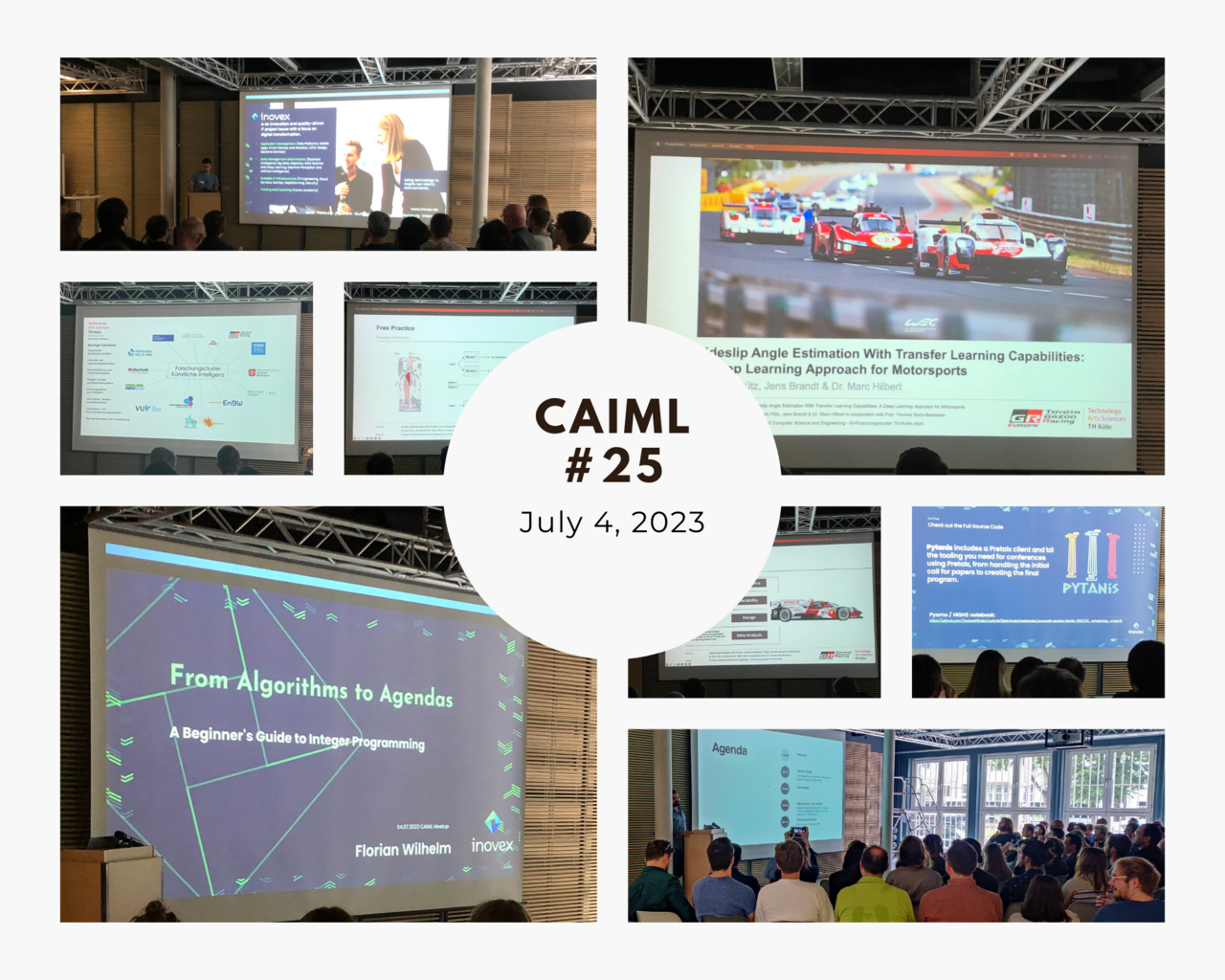CAIML #25
CAIML #25 is going to happen on July 4, 2023, hosted by the AI Science Cluster of the TH Köln (event orga by Prof. Gernot Heisenberg and Dr. Martin Rosellen). We will have two talks and a networking session with food and drinks.
Agenda
18h30 Open Doors
19h00 Welcome & Intro
19h15 Dr. Florian Wilhelm (Head of Data Science & Mathematical Modeling at inovex GmbH) - From Algorithms to Agendas: A Beginner’s Guide to Integer Programming
This talk will provide an introduction to Integer Programming and demonstrate how it can be used for conference scheduling. We will explore the basics of Integer Programming and how it can be applied to optimize the allocation of talks to time slots and rooms in a conference program. By the end of the talk, attendees will have a better understanding of how this powerful tool can help to create an efficient and effective conference schedule that maximizes attendee satisfaction. Whether you’re a conference organizer or simply interested in learning more about optimization algorithms, this talk is for you!
5 Minute Break
19h45 Noah Pütz, Jens Brandt & Dr.-Ing. Marc Hilbert - Sideslip Angle Estimation With Transfer Learning Capabilities: A Deep Learning Approach for Motorsports
In cooperation with Prof. Dr. Thomas Bartz-Beielstein and the AI Research Cluster of TH Köln.
Knowing the sideslip angle of a race car at every point in time is a crucial requirement to compete in modern day competitions. Unfortunately, measuring the sideslip angle directly is prohibited under the regulations in endurance racing and too expensive to be deployed in mass-produced cars. Being limited by the available data and capabilities of embedded hardware, how can one get a good estimate of the sideslip angle? Considering the inherent non-linear behavior of vehicle dynamics, neural network approaches have gained popularity, particularly in high-speed environments. However, these approaches often struggle to generalize effectively across different car setups and tracks. Our research focuses on the transfer of knowledge from one track to others, where labeled data is sparse or even not available. By doing so, the findings could have the potential to enhance performance not only in motorsports, but also in the long term for electric cars, where more complex control strategies are possible. Attendees will have the opportunity to gain insights into the practical implications of our research and its potential to improve virtual sensing in the literally most fast paced environment.
20h15 Networking with food and drinks
